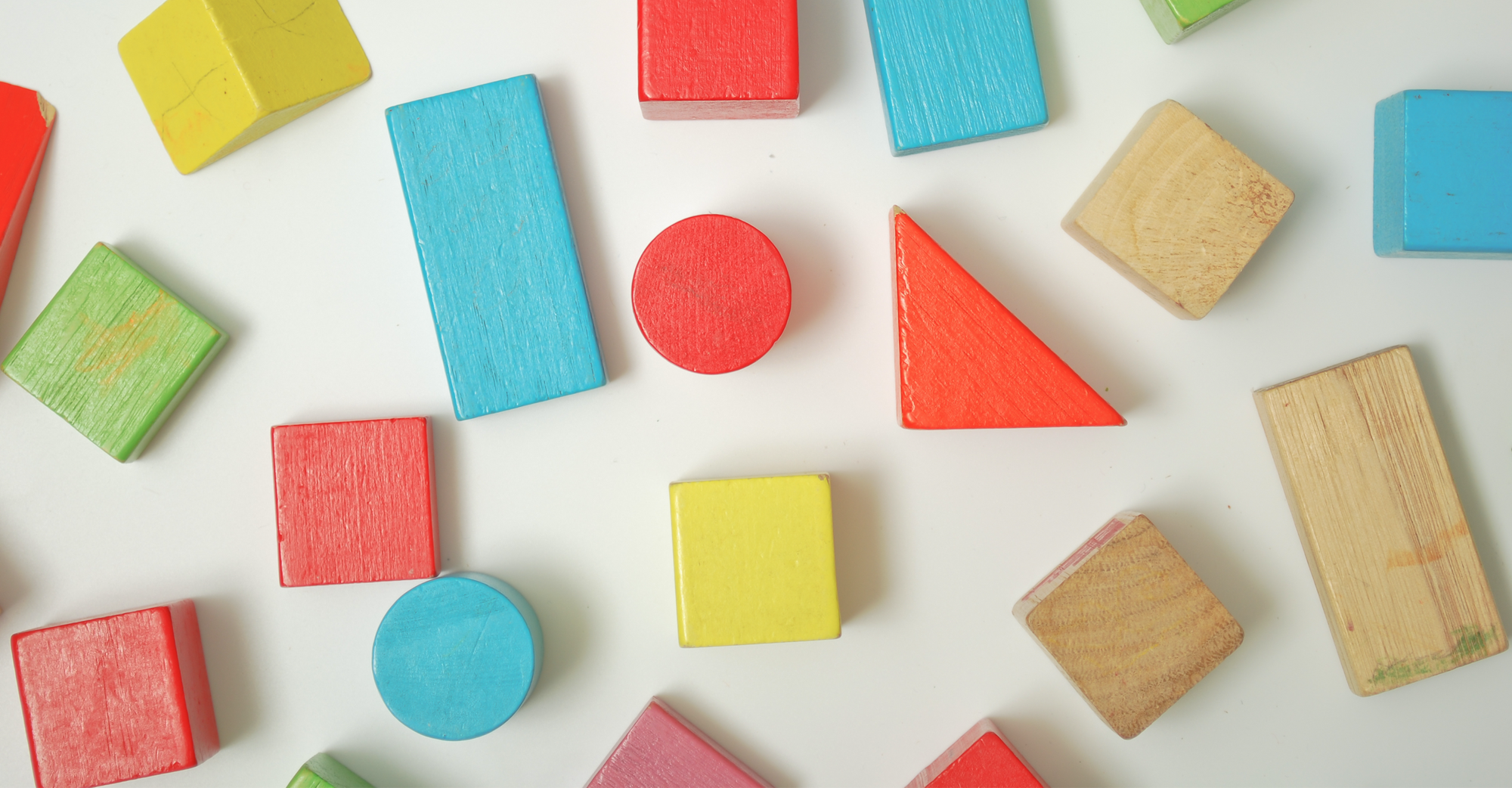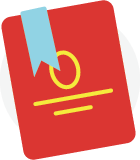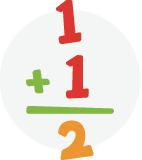


If you're a parent or grandparent with a child who's struggling with a subject in PreK, TK, Kindergarten or 1st Grade, we've put together a set of questions that will direct you to solutions to help. The questions center around the Core Curriculum, which is designed to clearly outline what students are expected to learn at their grade level. Heidi's products were developed to specifically target and exceed these standards in a fun and developmentally appropriate way, so you can have confidence that your child will succeed! Select from both Reading and Math below and follow the questions and links to identify the best starting place for your child's individual needs.

If you show your child the letters of the alphabet all mixed up and out of order on flash cards, would he or she be able to tell you the letter name and the sound for all of the capital and lower case letters?
Alphabet Worksheets - Set 1 & Set 2
Alphabet Trace and Sound Circle Worksheets
Yes: Skip to the Sing & Spell Video Series, beginning with Sight Words 1 and Sight Words 2
If you ask your child to write a specific letter, such as a lowercase q, could he or she do it correctly on lined paper, with proper placement? If you ask your child to write both the lowercase and the capital letter without copying, could they do it?
"Sight Words" are words that appear most frequently in the english language and are considered essential for early readers, yet can't be sounded out and thus difficult to learn.
If you show your child the following words on flash cards, will they be able to read them immediately and without hesitation? Would they be able to spell and/or write the words easily?
The first 25 basic sight words: and, are, can, for, go, have, he, here, is, like, me, my, of, on, play, said, see, she, that, the, they, to, was, with, you
Yes: Check the word lists on the remaining Sight Words videos to see which ones your child needs the most. (These are listed under each title.) If necessary, put your child in front of the computer and have them try to read you the list of words included on each product.
That should help you figure out which one he or she needs. The basic order of difficulty of the words for the various song sets is roughly:
• Sight Words 1 - and, are, can, for, go, have, he, here, is, like, me, my, of, on, play, said, see, she, that, the, they, to, was, with, you
• Sight Words 2 - red, orange, yellow, green, blue, purple, brown, black, white, gray, pink, an, at, big, do, down, has, in, it, no/yes, not, small, this, too, up, we, what, who.
• Sight Words 4 - A (the word, not the letter!), all, am, as, be, by, came, dear, did, friend, from, good, had, his, I (word), if, love, made, nice, now, out, over, put, some, then, very, will, and your.
• Sight Words 5 - Zero the Hero, one, two, three, four, five, six, seven, eight, nine, ten, about, around, but, eat, fight, find, funny, get, into, new, ride, please, pretty, saw, say, says, so, under, which.
• Sight Words 3 - again, away, because, come, could, help, house, how, jump, little, look, make, one, run, should, their, there, they're, three, to, too, two, want, we're, were, when, where, who, why, and would.
• Sight Words 6 - ask, ate, day, does, every, give, going, her, him, just, many, must, no, off, only, our, ran, show, soon, take, them, think, walk, well, went, yes.
These are words like "cat," "pig," "mud," and "net," etc. If you show your child words like these on flash cards, all mixed up, would he or she be able to sound them out and then tell you what the words are? If you tell your child to write the word, "mop," will he or she be able to do so correctly, without hesitation, just by thinking of the sounds in the word?
No: CVC Word Family Worksheets - Set 1
CVC Word Family Worksheets - Set 2
Optional: Word Family Songs videos (Listen especially to the "How Do You Sound It Out?" song.)
Yes: Skip to the Sounds Fun Phonics Program.
(In Kindergarten) - words that end with "-ay," as in "day" - words that begin with ch-, sh-, or th-, such as "chin," "shop," or "thin" - words that have the "-ee" or "-ea" spelling pattern, such as "feel" or "seat" - words that have the "-ing" spelling pattern, such as "sing" or "going" - words that have the "-ink" spelling pattern, such as "pink" or "think" - words that have the "-unk" spelling pattern, such as "bunk" or "trunk" - words that follow the "Bossy E" phonics rule, such as "make" or "bike"
(In First Grade) - words that have "-ai" in the middle, as in "sail" - words that have "r-controlled vowels," such as: (car, star), (her, tiger), (sir, stir), (fur, blur), (or, for) - words that have the "-au" or "-aw" spelling pattern, as in "auto" or "awful" - words that have the "-ew" spelling pattern, such as "new" or "few" - words that have the "-igh" spelling pattern, such as "night" or "fight" - words that have the "-oa" spelling pattern, such as "boat" or "foam" - words that have the "-oi" or "-oy" spelling pattern, such as "coil" or "toy" - words that have the "-oo" spelling pattern, such as "food" or "book" - words that have the "-ou" or "-ow" spelling pattern, such as "found" or "how" - words with a "Magic Y" at the end, such as "happy" or "mommy" - words that follow the "Vowel Walk" rule, such as "die" or "suit"
Sounds Fun Phonics Word Building Kit
Optional, but highly recommended: Sounds Fun Worksheets Set 1: Large & Small flashcards, plus 5 different worksheet formats for each of 14 sound spelling units including: sh-, th-, ch-, -unk, -ink, -ing, -ay, -ai, -ee, -ea, -eo, -oo, Bossy E, Vowel Walk Sounds Fun Worksheets Set 2: Large & Small flashcards, plus 5 different worksheet formats for each of 14 sounds spelling units including: -ar, -or, -er, -ir, -ur, -oy, -oi, -ow, -ou, -aw, -au, -ew, -igh, Magic Y
Yes: Congratulations! Your child may not need us for reading support anymore!

If you show your child the numbers from 0-10 out of order on flash cards, are they be able to tell you what number you are holding? Can they recognize the basic shapes? (circle, square, rectangle, triangle, oval, diamond, octagon, hexagon, trapezoid)
Jumpin’ Numbers 0-10 & 9 Basic Shapes Flashcards
Optional: Counting Creatures Worksheets for Numbers 0-10
Yes: Use Number Jumble 0-30 Video to teach your child to recognize and identify the numbers 11-30 out of order. If they already know the numbers 11-30 out of order, all mixed up on flash cards, skip to Musical Math Vol. 1
If you were to show your child a number 12, would they say 12, or would they say 21? Or would they say, "One two!"
Can your child write the numbers 11-30 if asked to do so? If you said, please write number 15, would he or she know what to do?
Optional: Counting Creatures 11-20 Number Workbook
Yes: Skip to Musical Math Vol. 1
These are all basic math concepts that are taught in Kindergarten and reviewed in First Grade to set the foundation for math and learning all the different math skills. Children should know how to sort objects by size, shape, color, as well as identify AB, AAB, and ABC patterns.
Counting to by 2's, 5's, and 10's up to 100 is also a common math concept your child should know by First Grade.
Can your child do basic addition and subtraction? Would they be able to tell you 2 + 3 equals? What about 5 + 0?
Optional:
Butterfly Addition and Subtraction Worksheets
Ladybug Addition and Subtraction Worksheets
Shark Teeth Addition Activity and Worksheets
Counting Creatures Addition Worksheets and Subtraction Worksheets
Yes: Skip to Musical Math Vol. 2